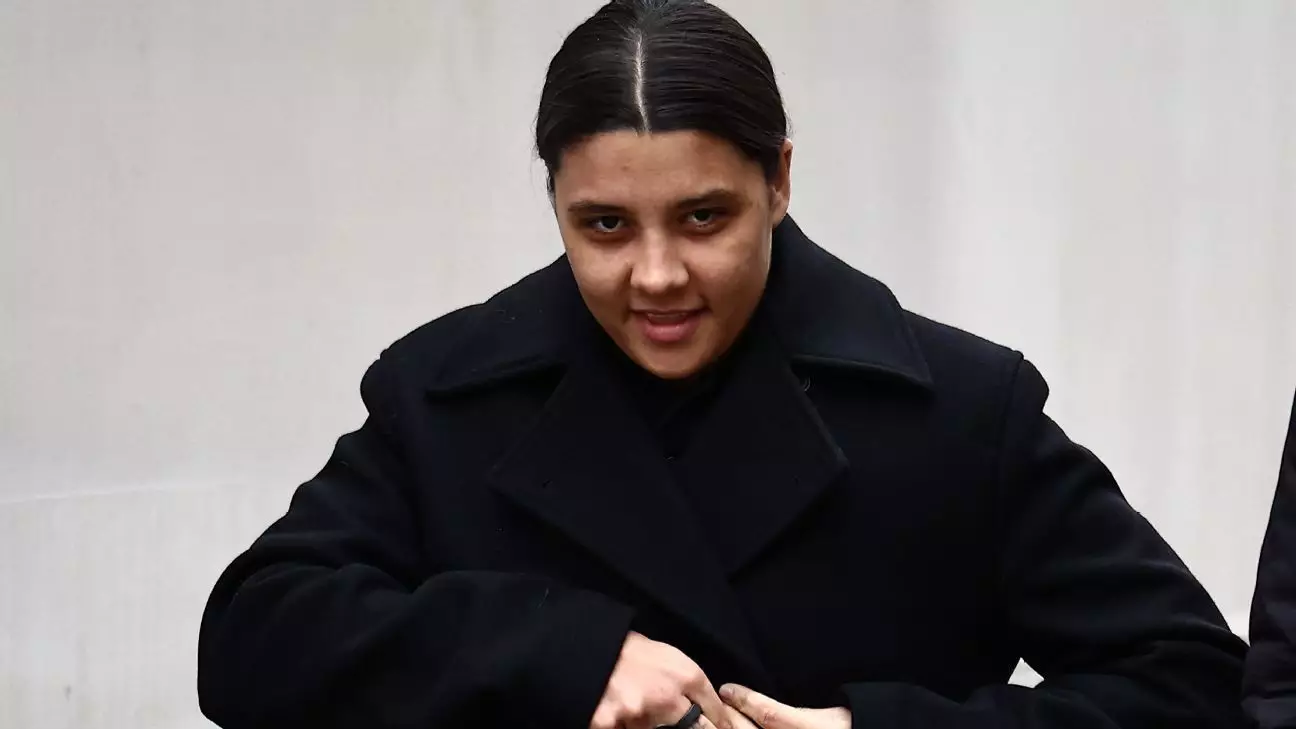In late January 2023, an unusual confrontation unfolded between Chelsea forward Sam Kerr and Metropolitan Police officer Stephen Lovell, igniting significant media attention due to both Kerr’s prominence in women’s football and the nature of the allegations. The incident transpired as Kerr and her partner, Kristie Mewis, were taken to Twickenham Police Station following a dispute with a taxi driver. The driver alleged that the pair had caused damage to the vehicle and refused to pay for cleanup costs after one of them became ill. The events leading to the complaint raise questions about the circumstances around the incident, including the behavior of both parties involved.
Kerr, alongside Mewis, claimed that the taxi driver had acted erratically during their ride. They indicated that he drove recklessly, abruptly stopping, speeding, and even locking them in the vehicle for an extended period. This portrayal sets the stage for understanding the heightened emotions and tensions that marked the encounter at the police station. Instead of confronting the initial grievance regarding the taxi ride, the legal proceedings have since evolved into a complex dispute highlighting issues of race, professionalism, and the responsibilities of public figures.
The legal basis for the charges against Kerr, specifically related to allegedly racially aggravated harassment, indicates a significant escalation from the initial taxi incident. Lovell testified that Kerr’s comments during their encounter—specifically calling him “stupid and white”—had left him feeling belittled and upset. It’s important to note that while Kerr does not dispute the comments, she insists that invoking racial elements should not escalate the incident to criminality.
This trial encapsulates broader dynamics at play—who holds the power in these situations and how the narrative unfolds when a public figure is involved. Lovell’s assertion of feeling “humiliated” because of the comments raises fundamental questions about emotional impact versus intent and context. While emotions are valid, one must also consider whether they justify escalating a poorly executed interaction to the legal arena.
A central element of this trajectory involves the Crown Prosecution Service (CPS) and their initial decision not to pursue charges against Kerr. Notably, they described the potential resolution as an apology rather than a criminal charge. This decision was reportedly reconsidered after further investigation, highlighting the complexities involved in how authority figures navigate legal standards and public sentiment. Lovell’s assertion of feeling shocked and upset emerged later, suggesting that the firsthand emotional response may not have been immediate but rather developed as the case proceeded through the legal system.
Defense counsel Grace Forbes pointedly questioned Lovell about the timing of his statements, insinuating a correlation between the CPS’s initial reluctance to pursue charges and his subsequent narrative construction. Such inquiries bring to light the potential for subjective biases in a situation where the defendant holds high social and media visibility, particularly during a significant sporting event such as the Women’s World Cup.
The Social Implications of the Case
This incident transcends a simple legal dispute; it embodies the intersection of race, gender, and authority. Sam Kerr, a skilled athlete and a public figure, finds herself in a precarious position, where her actions and words are subject to intense scrutiny. Conversely, Officer Lovell’s response illustrates the challenges that law enforcement personnel face in maintaining professionalism amid personal feelings of indignation and perceived affront.
By dissecting this case, one can glean broader societal issues where public figures and law enforcement may struggle to reach common ground. The dynamics at play serve as a reminder of the mutual responsibility in public engagement, encompassing both respect and accountability.
As the case continues to unfold, it compels society to reflect critically on how emotional experiences, intended or incidental remarks, and the complex fabric of public perception converge in the justice system. Ultimately, this incident encapsulates the profound repercussions that can arise from isolated encounters, showcasing the need for awareness, empathy, and reform in how we understand and respond to crises involving figures in the public eye.


Leave a Reply